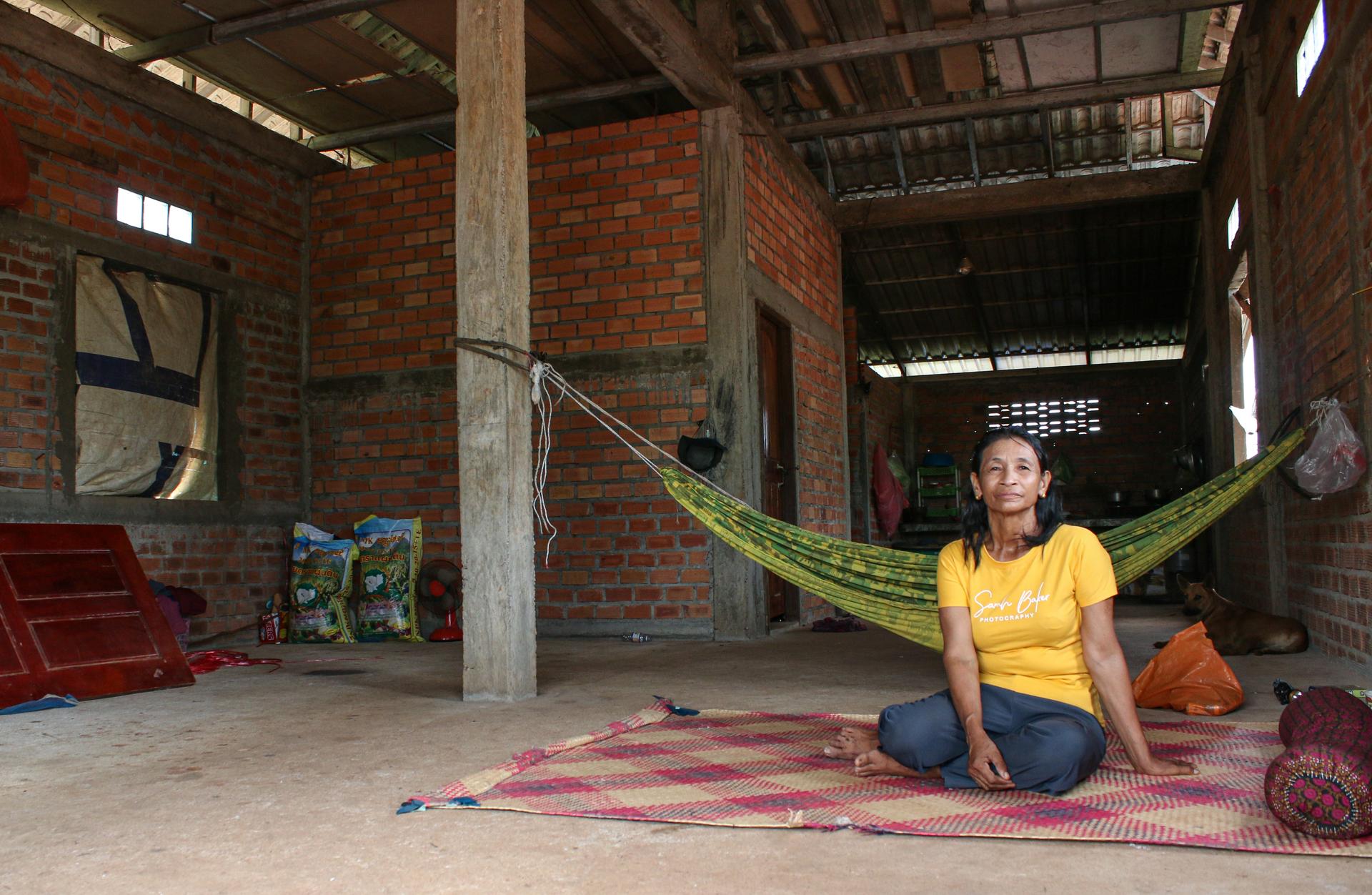Cambodia farmers displaced by sugar plantations proceed with landmark international class action suit
Hoy Mai, 61, cuts down weeds on the farm she runs with her children in Oddar Meancheyprovince in northern Cambodia. The rice and cassava fields in her area stretch out to the horizon.
But 14 years ago, Mai was far from this landscape, trapped in a prison cell in Siem Reap, pregnant and terrified. She was imprisoned for eight months after she refused to sign over her five hectares of farmland to make way for a proposed sugar plantation.
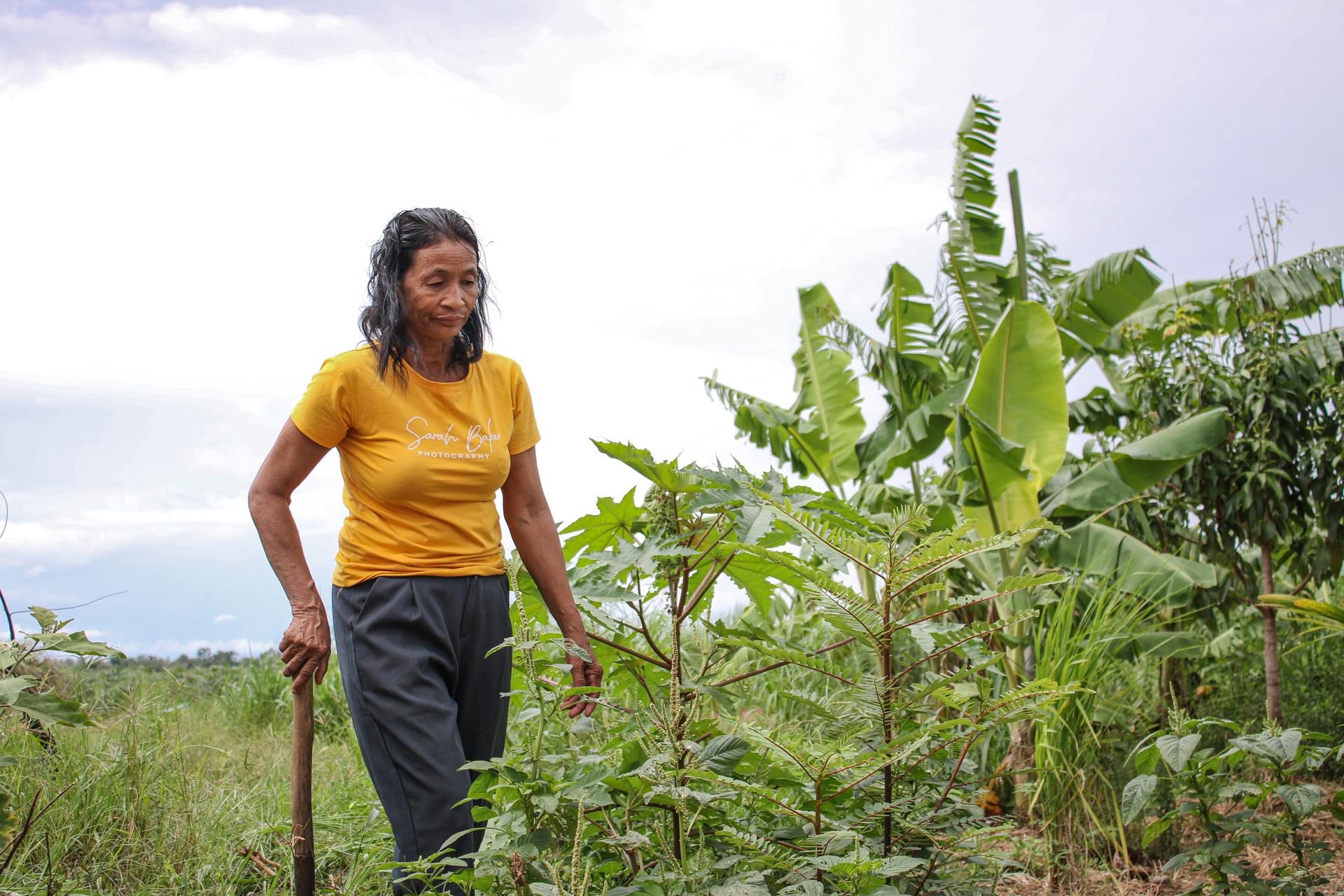
“My experience was horrible. My life has been difficult, and I have made sacrifices up until today,” she said. “Everyone has the right to seek justice. That’s what keeps motivating me.”
In 2008, the Cambodian government leased land villagers had lived and farmed on for decades to subsidiaries of the Thai sugar giant Mitr Phol through economic land concessions. Police burned down homes, forcibly evicted residents and imprisoned others.
Now, Mai is part of a group of 700 families suing Mitr Phol in a landmark class action case in Thailand. The company is one of the world’s largest sugar producers and a major Coca-Cola supplier.
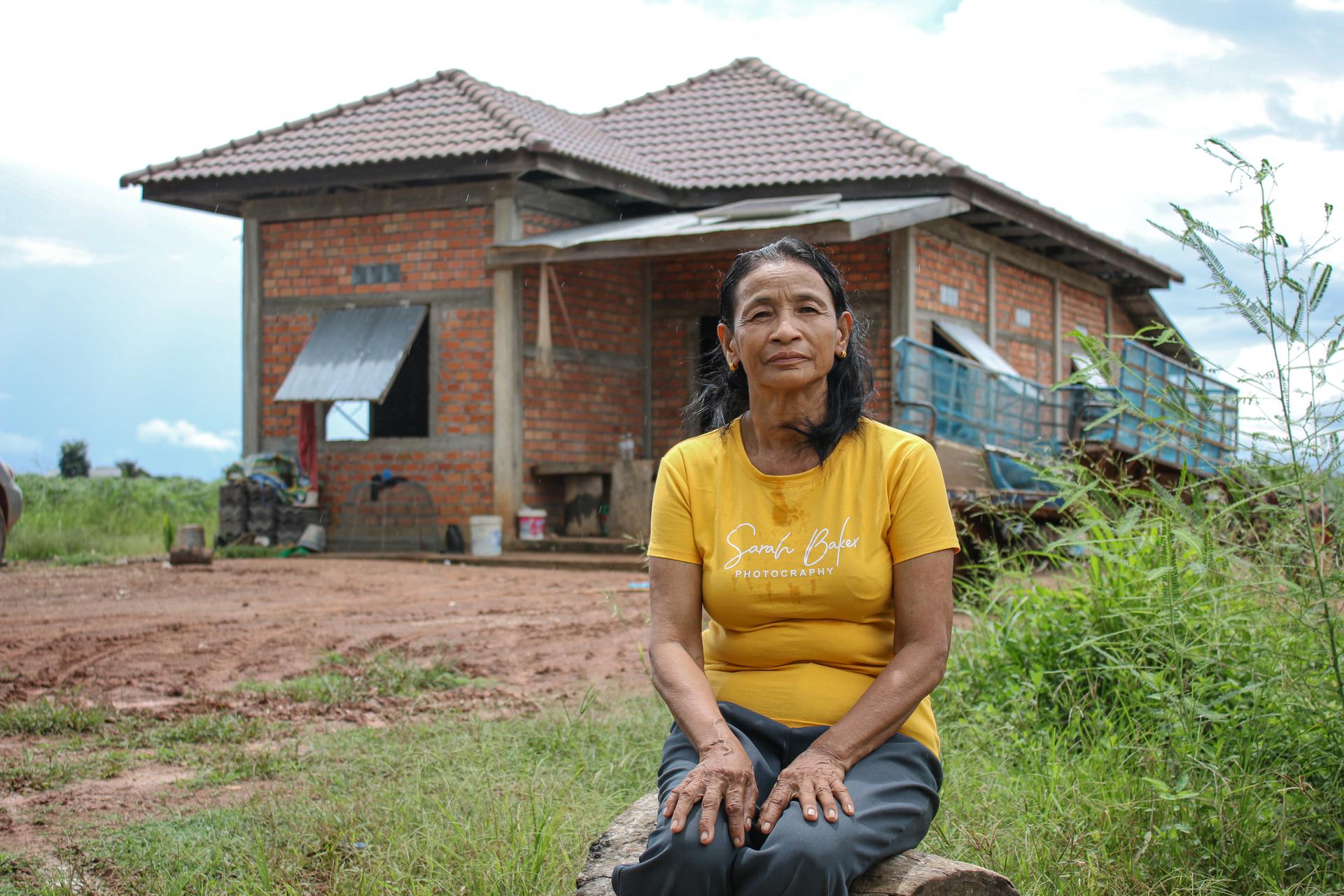
Sor Rattanamanee Polkla, a Thai lawyer representing the plaintiffs and executive coordinator of the Community Resource Centre Foundation, said this case could be a signal to other companies indicating what could happen if they violate human rights while operating abroad.
“They cannot think that OK, they violate [human rights] in another country, and then they can just go back, and no one comes to follow you. It’s not like that at all,” she said after a Monday Bangkok South Civil Court hearing. “Now, it’s global, worldwide, and there are many organizations supporting the victims.”
These international lawsuits, with alleged human rights victims suing major corporations, occur more often in the Global North, such as in European countries or the US, according to Diane Desierto, a law and global affairs professor at Notre Dame Law School.
“This is extremely significant, if not historic, because Southeast Asia on business and human rights doesn’t have the same kind of liberal legal systems that permit access for foreign claimants to directly sue companies. Thailand is rare in this respect.”
“This is extremely significant, if not historic, because Southeast Asia on business and human rights doesn’t have the same kind of liberal legal systems that permit access for foreign claimants to directly sue companies,” she said. “Thailand is rare in this respect.”
Also at play in this case are internal documents from Coca-Cola, a major buyer of Mitr Phol’s sugar. A federal court in the state of Georgia ordered Coca-Cola to turn over the documents to be used as evidence in the Thai lawsuit, which could include previously private information from Coca-Cola’s 2014 investigation on alleged land grabbing related to sugar plantations in Cambodia.
There may be legal exposure for Coca-Cola from this case depending on what is contained in the documents, which have not been made public yet, Desierto said.
“The disclosure of those reports from the Georgia proceedings is really crucial because for the first time, when that’s presented in the public, we will know to what extent Coca-Cola was in a position to know that there were human rights harms and whether they were in a position to prevent them from their own business dealings with the company Mitr Phol,” she said.
Mitr Phol, Coca-Cola and spokespeople for the Cambodian government did not respond to requests for comment.
Desierto believes these kinds of cases really can change how companies behave, but it’s an imperfect system, especially for the human rights victims pursuing justice.
“This case, to me, in many ways, is bittersweet for the Cambodian plaintiffs,” she said. “They’re being heard for the first time, but for many of them, they’re not going to get the full recovery and the reparation of the harms that they have experienced from the human rights violations that dragged on for many years.”
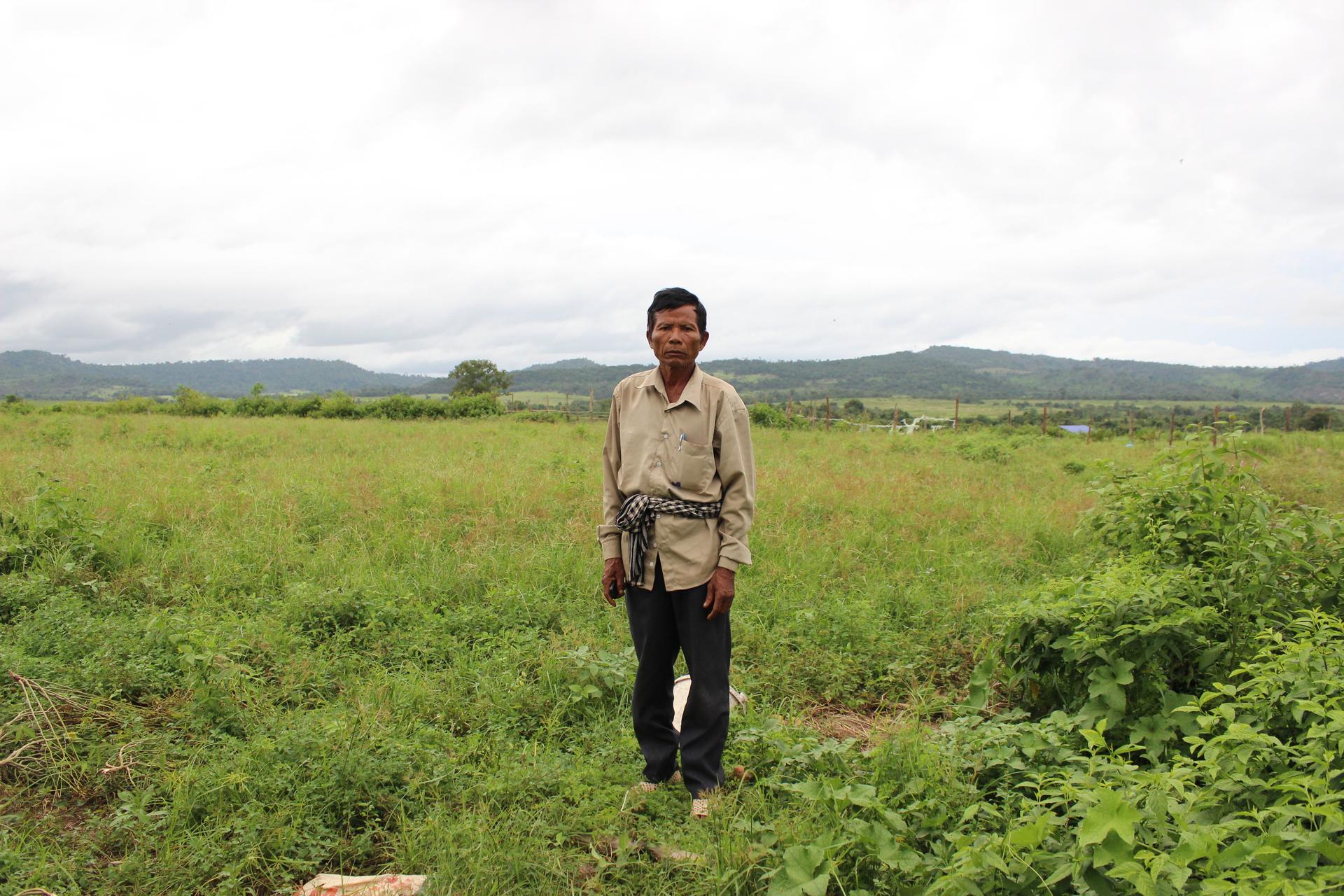
Teng Kao, who lives in Koh Kong province in southwest Cambodia, knows that bittersweet feeling well. He was a plaintiff in a similar lawsuit in the UK filed against the British sugar company Tate & Lyle, which was settled out of court late last year. The company’s Thai supplier KSL Group produced sugar on land Cambodian villagers had lived and farmed on.
Tate & Lyle and KSL Group did not respond to The World’s requests for comment.
With Kao’s cash settlement, he is building a house for his family, but the money can’t compensate for his loss.
“Now, since I lost my land, my children have lost the opportunity for education while we, as parents, scrape by on small incomes,” he said. “My family members migrated to another country for work, and I myself have sunk into overindebtedness.”
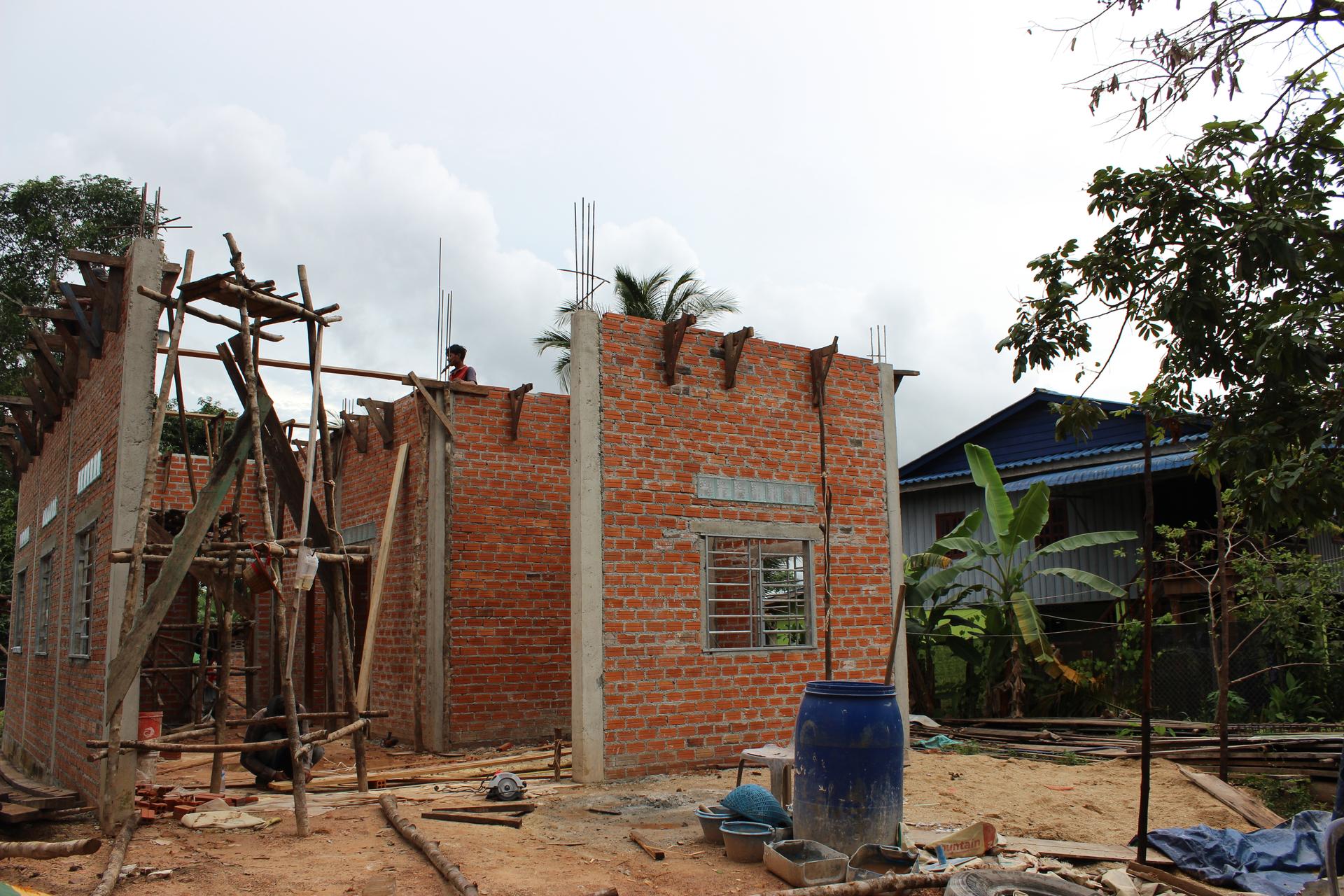
Kao wrote a song about the devastation his community has faced, which he has used at protests in Phnom Penh.
“We lost our crops without anything left. The company grabbed our land and cleared it,” he sang from a plot of land he received in an earlier settlement reached in 2014. “This is a true story. It’s not a myth.”
Additional reporting, interpretation and translation by Lay Sophanna, Lim Kimhong and Eung Sea.
